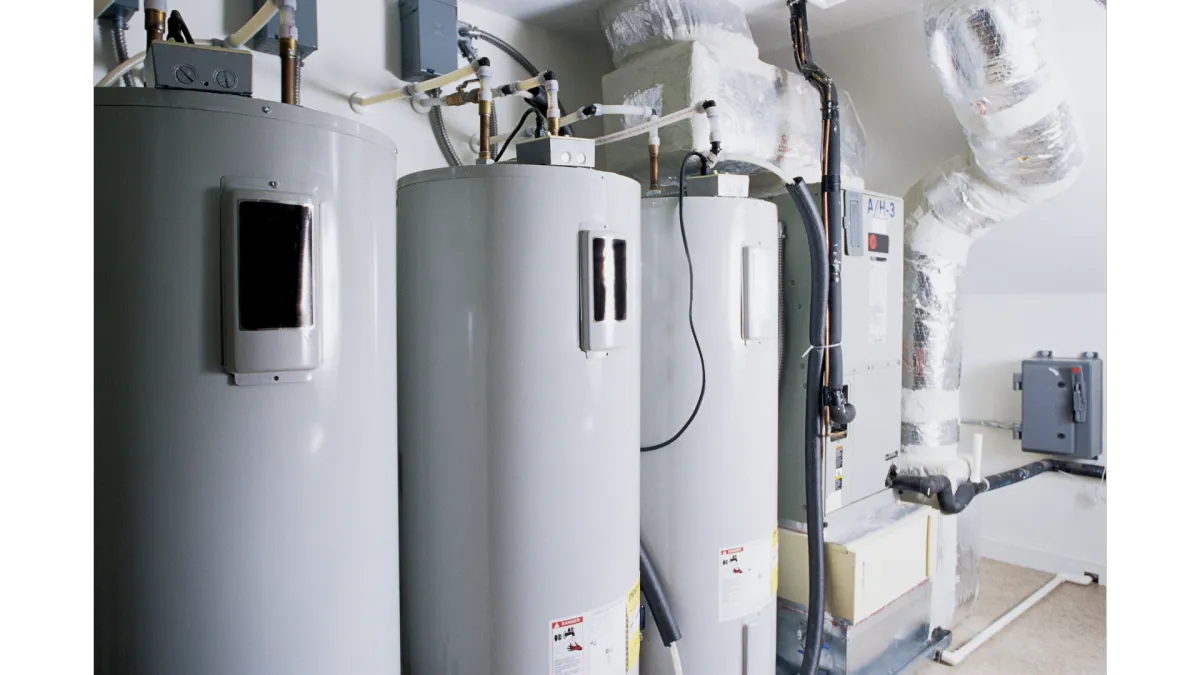
The Ultimate Guide to Water Heaters: Choosing the Right Option for Your Home
Introduction:
When it comes to modern-day comfort, few things compare to the luxury of hot water at our fingertips. Whether it's for a relaxing shower, a cozy bath, or efficient dishwashing, a reliable water heater is an essential appliance in any home. In this comprehensive guide, we'll delve into the world of water heaters, exploring different types, key considerations, and tips to help you make an informed decision for your specific needs.

Understanding the Types of Water Heaters:
a. Storage Tank Water Heaters: The most common type, these heaters store and heat a large volume of water in a tank, ready for use whenever needed.
b. Tankless Water Heaters: Also known as on-demand water heaters, these compact units heat water as it passes through, eliminating the need for a storage tank.
c. Heat Pump Water Heaters: These energy-efficient systems use electricity to transfer heat from the surrounding air or ground to heat the water.
d. Solar Water Heaters: Harnessing the power of the sun, these environmentally friendly systems utilize solar energy to heat water, making them highly sustainable options.
Factors to Consider When Choosing a Water Heater:
a. Fuel Type: Determine whether you prefer gas, electric, or renewable energy sources based on availability, efficiency, and cost-effectiveness.
b. Capacity: Assess your household's hot water usage to select an appropriately sized water heater that can meet your demands.
c. Energy Efficiency: Look for ENERGY STAR® certified models to ensure optimal efficiency, leading to reduced energy consumption and lower utility bills.
d. Installation Space: Consider the physical space available in your home, as different types of water heaters have varying installation requirements.
The Benefits of Upgrading Your Water Heater:
a. Improved Energy Efficiency: Newer models often come with advanced technology, resulting in higher energy efficiency and potential savings.
b. Enhanced Performance: Upgrading your water heater can provide faster heating times, consistent water temperatures, and improved reliability.
c. Long-Term Cost Savings: Although the initial investment may be higher, the energy savings and longevity of a newer model can offset the costs over time.
d. Environmental Impact: Energy-efficient and eco-friendly water heaters reduce carbon footprint, helping to conserve natural resources.
Maintenance and Care:
a. Regular Inspections: Schedule professional inspections to identify any potential issues and ensure optimal performance.
b. Flushing the Tank: Regularly flushing the tank helps remove sediment buildup, maintaining efficiency and extending the lifespan of the water heater.
c. Temperature and Pressure Valve Check: Verify that the temperature and pressure relief valve is functioning correctly to prevent excessive pressure buildup.
d. Professional Servicing: Consider professional servicing every few years to ensure the water heater's components are in good condition and functioning optimally.
Conclusion:
A reliable water heater is an indispensable part of our daily lives, providing comfort and convenience at the turn of a tap. By understanding the different types, considering essential factors, and investing in regular maintenance, you can choose the right water heater for your home and enjoy its benefits for years to come. Remember, when in doubt, consult with a professional plumber to help guide you in selecting the perfect water heater that meets your specific needs and budget.
So, go ahead and make the right choice for your home, ensuring a steady supply of hot water and the utmost comfort for you and your family!